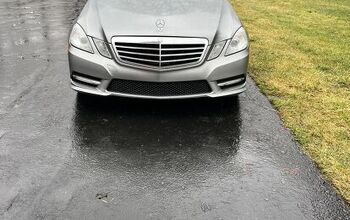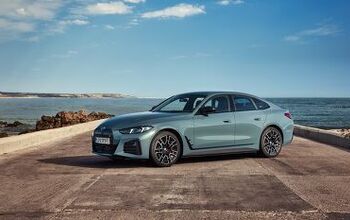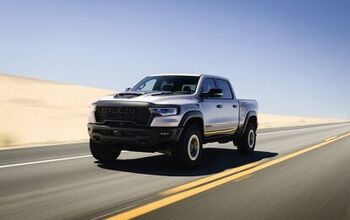UK Cops Look to Crack Down on Distracted Drive-Thru Payments, Among Other Things

As part of its push to eliminate the scourge of distracted driving, the UK has given the country’s notoriously rigid police force a new tool to help eliminate road deaths: the ability to levy $256 fines and six penalty points to motorists paying via Apple Pay at the drive-thru.
Thanks to new laws that went into effect this spring, the police, some of which take great pride in ridding the country of tools that fell off an electrician’s belt, now have the power to turn that late-night McDouble run into a costly nightmare.
The new law effectively doubles the existing penalties for distracted driving, and reaching for the phone to pay at the drive-thru window can indeed fall under the heading of “distracted driving.” However, handing the employee cash or a card is somehow different and okay.
As UK drivers are only allowed six penalty points in the first two years after receiving their license, being caught using the Apple Pay phone app in the drive-thru would cause their license to make like British Leyland and disappear.
There’s no disputing that distracted driving is one of the great public safety threats of our time. Just the thought of looking down at a phone and sending even a one-word text while on the road sends shivers down this writer’s spine. A driver may as well be in the backseat, counting cars out the back window.
Still, the UK’s law seems remarkably tight-assed, even for Britain. According to the Sun, the new law prompted confusion from tech-savvy Brits eager to know exactly how their driving career could go pear-shaped.
From the traditionally cheeky paper:
Twitter user Jay Chase asked police if he could use Apple Pay at the fast food chain’s drive-thru service.
Greater Manchester Police Traffic replied: “If your engine is off and your handbrake applied and you’re parked yes. If your engine is on no.”
We take it that the driver of a Vauxhall Corsa, in the throes of a Mac Attack, would be in violation of the law if he paid via Apple Pay with the car in neutral, handbrake on, but the engine still running. After all, he might inadvertently press the handbrake button and lower the lever, depress the clutch pedal, bump the shifter into gear, and press down on the accelerator while rummaging for his phone in his jacket pocket.
Britain isn’t alone in adopting tough new rules to crack down on distracted and impaired driving. A recent brouhaha in Surrey, British Columbia (adjacent to the affordable and financially clean city of Vancouver) led to fears that police were targeting phone users in drive-thrus. Strict new laws came into effect in Canada following the legalization of marijuana.
After a wave of backlash generated by a video posted to Twitter, the Surrey RCMP detachment said it was not conducting cell phone enforcement at a particular McDonalds drive-thru. Instead, the detachment said, the officer in the video was offering a verbal warning after seeing the motorist using their cell phone while driving up to the drive-thru. No fine was issued.
Corporal Elenore Sturko told the Now-Leader (via Vancouver Island Free Daily), “Regardless of the fact that it’s a drive-thru or a parking lot, under the Motor Vehicle Act those are considered part of the roadway and still subject to enforcement of the B.C. Motor Vehicle Act.”
It isn’t known if the engine-off rule applies to Apple Pay drive-thru purchases, though Manitoba RCMP said late last year that using the phone for such purchases is okay. Using it for texting or talking in the drive-thru, however, is a big no-no.
In the U.S., 18 states and the District of Columbia prohibit the use of hand-held devices while driving.
[Image: Dusan Petkovic/ Shutterstock]

More by Steph Willems
Latest Car Reviews
Read moreLatest Product Reviews
Read moreRecent Comments
- Redapple2 Dear lord ! That face. HARD NO.
- Urlik Let’s ban for all. Having that data anywhere leaves it open to the Chinese government potentially hacking systems to get the data.
- Redapple2 Gen 1 - 8/10 on cool scale.Gen 2 - 3/10.
- SCE to AUX "...to help bolster job growth and the local economy"An easy win for the politicians - the details won't matter.
- Kjhkjlhkjhkljh kljhjkhjklhkjh so now we will PAY them your tax money to build crappy cars in the states ..


































Comments
Join the conversation
?! . Doesn't make sense to me, they're in a parking lot for all purposes . If the law says the drive up lane is considered the public roadway, does that mean they'll be maintaining it and re paving as necessary too ? . -Nate
I think the laws are different there compared to the US in regards to what is considered public.